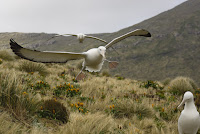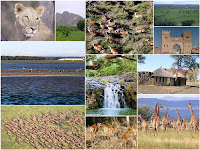Cairo or Al' Qahirah
 Capital of Egypt, largest city in the Middle East and in Africa, Cairo knew settlements as long ago as 6,000 years. The roots of the modern city, however, date from A.D. 969, when Muslim invaders from Tunisia secured and enlarged the site. Major growth came in the 19th century with the opening of the Suez Canal, extending Cairo's dominant status as a hub of trade with Europe, Asia, and Africa. Although Cairo translates as "the victorious," Cairenes call it Misr, meaning "Egypt." Agriculture is the country's economic mainstay. Revenue flows from mining, industry, trade, finance, and tourism, which, despite concerns over political unrest, has substantially rebounded. In recent decades Cairo has seen extreme growth, and housing can be scarce. More than 350,000 people are born there yearly, and nearly 50 percent of the population is 19 years old or younger. But Cairo remains a great city for its size, traditions, learning, and culture. >>>>Read more: National Geographic
Capital of Egypt, largest city in the Middle East and in Africa, Cairo knew settlements as long ago as 6,000 years. The roots of the modern city, however, date from A.D. 969, when Muslim invaders from Tunisia secured and enlarged the site. Major growth came in the 19th century with the opening of the Suez Canal, extending Cairo's dominant status as a hub of trade with Europe, Asia, and Africa. Although Cairo translates as "the victorious," Cairenes call it Misr, meaning "Egypt." Agriculture is the country's economic mainstay. Revenue flows from mining, industry, trade, finance, and tourism, which, despite concerns over political unrest, has substantially rebounded. In recent decades Cairo has seen extreme growth, and housing can be scarce. More than 350,000 people are born there yearly, and nearly 50 percent of the population is 19 years old or younger. But Cairo remains a great city for its size, traditions, learning, and culture. >>>>Read more: National GeographicMore on Cairo: Al Ahram, Wikipedia, Saudiaramcoworld, Al Ahram Weekly, Arab.net, Cyberschoolbus, The Independent, Tourist Guide, Infoplease, Mapsofworld, Helium, CNN, Encarta, Touregypt, Islamicmagazine, Texas University, Egyptvoyager, Find Articles, Idaho University, CIAS, Toursim-Egypt, Books, Picasa


